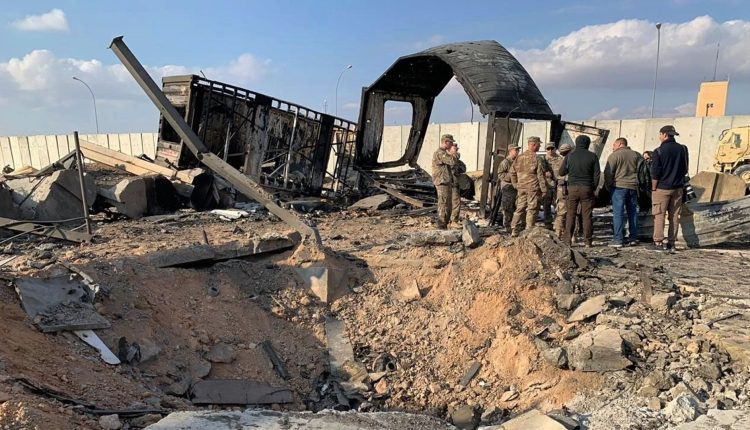Iran vows revenge over killing of IRGC leader
QAMISHLI, Syria (North Press) – Iran’s Foreign Ministry strongly condemned on Monday the killing of senior leader in Iran’s Islamic Revolutionary Guard Corps (IRGC) in an Israeli airstrike in Syria. Tehran has vowed revenge.
Iranian Foreign Minister Hossein Amirabdollahian has expressed his condolences over the killing of Razi Moussavi, a top commander in the IRGC, in Syria and emphasized that “Tel Aviv should wait for a tough countdown.”
According to Tasnim, a semi-official Iranian news agency, Seyyed Razi Mousavi, a top commander in the IRGC and one of the IRGC’s senior advisors in Syria, was killed by an Israeli airstrike in in the town of Sayyida Zainab, south of Damascus.
Iranian President Ebrahim Raisi offered his condolences for the death of Moussavi and stated that Israel “will certainly pay for this crime.”
Iranian-backed militias have claimed responsibility for over 70 attacks against U.S. bases in Syria and Iraq since the onset of the Israel-Hamas conflict on Oct. 7.
On the same day and after the Israeli airstrike in Damascus, “Iranian sponsored Kataib Hezbollah terrorists and affiliated groups attacked coalition forces at Erbil, Iraq, resulting in several injuries,” the U.S. Central Command (CENTCOM) said on X platform.
The Pentagon confirmed that three U.S. personnel were injured, with one in critical condition, in an attack on Erbil Air Base.
In response to the attack on a coalition base at Erbil Airport in the Kurdistan region of Iraq, “U.S. military forces conducted airstrikes against multiple facilities used by Kataib Hezbollah and affiliated groups in Iraq at 8:45 p.m. (EST) on Dec. 25,” the CENTCOM stated.
Twenty-five militants were killed and injured in a U.S. airstrike that targeted three sites belonging to Iran-backed armed groups.
“These strikes are intended to hold accountable those elements directly responsible for attacks on coalition forces in Iraq and Syria and degrade their ability to continue attacks. We will always protect our forces,” said General Michael Erik Kurilla, Commander of U.S. Central Command.

